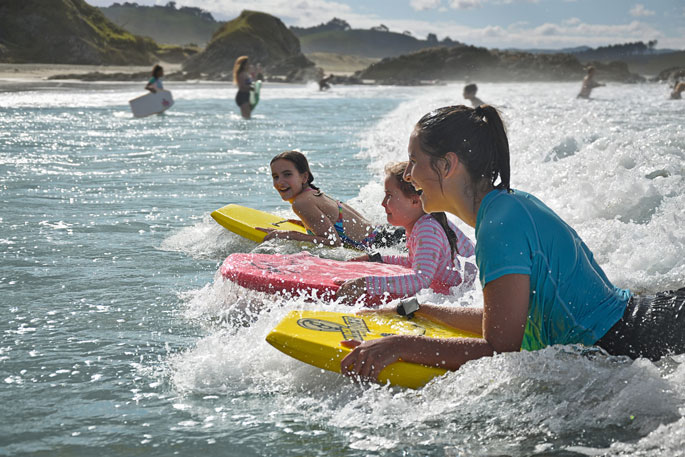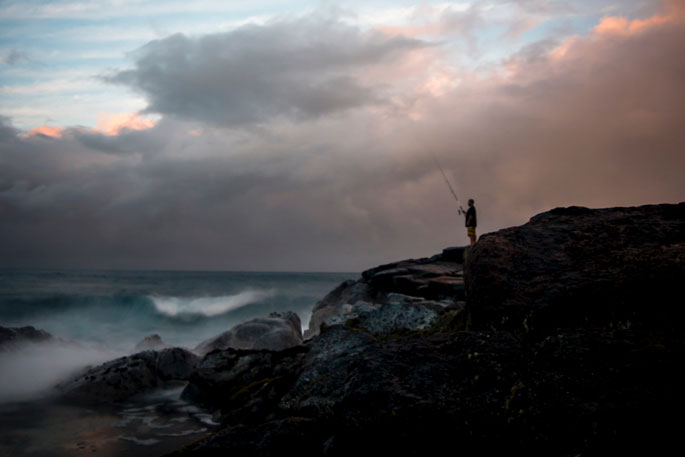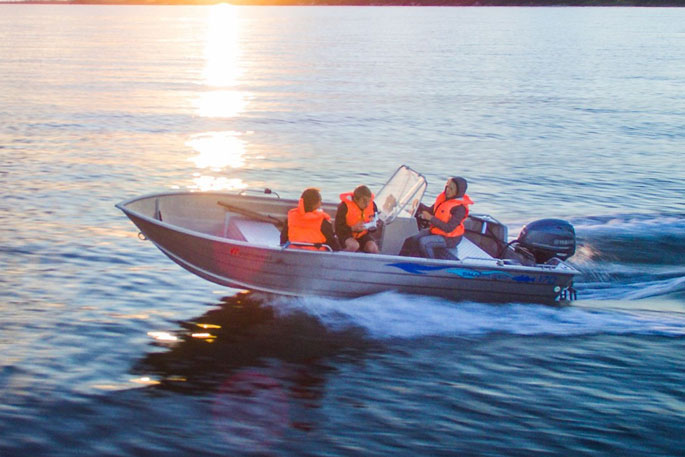ACC is laying down a challenge to all New Zealanders this summer.
There were 90 preventable drownings in 2021, the highest number in 10 years.
'A drowning is a devastating event for any whānau and community,” says Daniel Gerrard the Water Safety NZ CEO.
'These incidents are preventable – if you stop and take time to assess the risks. Collectively, we all have to make better decisions around water.”
Men were overrepresented in the deaths with 76 men and 14 women in 2021.
'They're a father, a son, an uncle, a brother or a grandfather,” says Gerrard.
'To Pakeha males in power boats, Māori men gathering kai underwater, Asian men fishing from rocks, Pasifika men fishing from boats… you guys are consistently over-represented in our drowning tragedies.”
And it is not just drownings.
From July 1, 2021, to June 30, 2022, there were 27,583 claims for water related injuries.
That's about 76 claims a day from people out enjoying activities like surfing, fishing and swimming. It cost $81 million to help people recover from these injuries.
Water sports had the highest number with 19,351 injury claims in this period, ahead of boating injuries (8649). Males made up 64 per cent of water-related injury claims.
The leading three regions for water-related injury claims in 2021 / 22 were Auckland (7899), Waikato (3718) and Bay of Plenty (2944).
There were 11,890 water-related injury claims accepted last summer, with January (5489) the highest month every year.
"We're huge supporters of people getting out and following their passion," says James Whitaker, ACC Injury Prevention Programme Lead.
"Whether it's getting out with their mates for a surf, time with the whānau by the beach or fishing at their favourite spot on the river.
"ACC is here to support people who need it and we'll do everything we can to help people recover It's better for everyone when fewer people are injured in the first place though.
'We are laying down a wero (challenge) to all New Zealanders to ‘Have a Hmmm'.
"Think about the risks relating to the activity you're about to do. Think about the best ways to avoid those risks, do things safely and you can keep doing what you love”
Here are the top five ways we are hurting ourselves in, on and around the water:
1. Surfing
Surfing New Zealand estimates at least 150,000 people surf regularly in New Zealand. This means around one in every 30 New Zealander gets out in the waves.
.jpg)
From July 1, 2021, to June 30, 2022, surfing was the leading cause in water-related injuries. There were 6136 - the highest number in the past five years. These injuries came at a cost of $10.7 million to help people recover.
'As surfers we have to respect the ocean," says Lee Ryan, the Development Manager at Surfing New Zealand.
"We need to acknowledge that our sport is an extreme sport and does have its dangers. It's knowing how to minimise the risks and that comes with experience.”
Surfing NZ advice for staying safe in the waves
- Surf within your skill level
- Use the correct surfboard for your ability and the conditions
- Make sure you keep your equipment in good condition
- Never ditch your board
- If you are a novice, get a lesson from Surfing New Zealand
2. Swimming
Research from Water Safety New Zealand in 2021 found that 3.2 million (85 percent) adult New Zealanders visited the coast in the past 12 months.
Almost half of them (48 percent) visit the coast on a monthly basis. Over two million people are active while visiting the coast, including swimming or playing in the water.

In 2021/22 there were 5187 swimming injury claims which came at a cost of $21 million.
Gerrard says most people underestimate the risks and overestimating their ability.
'Most drownings and water-related injuries are preventable if we all take a moment to consider the risks," he says.
Water Safety NZ is urging people to know the Water Safety Code.
Water Safety Code
- Be prepared
- Watch out for yourself and others
- Be aware of the dangers
- Know your limits
3. Fishing
Water Safety New Zealand research shows around a quarter of all New Zealanders get out for a fish.
It's a great feeling heading out with your mates to try reel in the big one.
The catch is it's also a leading cause for injury. In 2021/ 22 there were 3,856 fishing related injuries which came at a cost of $5.5m to help people recover.

Rock fishing is an increasingly popular recreational past-time, but it is also extreme hazardous. Being swept off rocks by large waves is a major hazard.
WSNZ tips for a safe fishing trip
- Always wear a lifejacket
- Take at least two forms of communication, such as mobile phone and VHF radio
- Check the marine weather forecast including the swell, tide and wind strength and direction
- Learn water survival skills – if you fall in, you have a higher chance of surviving
- Get to know the area you will be fishing, learn from locals, listen to advice and obey all warning signs
- Leave detailed information – tell someone responsible where you are going and when you are due to return.
- Never fish alone, make sure you always take a buddy with you
4. Swimming – Pool
Pools are often the central hub for whānau and friends to have fun. But unfortunately, pools are also dangerous places, particularly for younger children.
In 2021/ 22 there were 1,127 swimming related injuries in swimming pools around New Zealand. These injuries cost around $3m to help people recover.
WSNZ says adults need to ensure their children are safe. The vast majority of children who drown are alone and unsupervised, or in the care of other children at the time.
ACC are the naming rights sponsor of the ACC Water Skills for Life programme.
Gerrard says knowing how to swim is not enough.
'ACC Water Skills for Life teaches other lifelong water safety and survival skills,” he says.
'While we still teach the fundamentals of swimming, we also want to address the fundamentals of being safe around the water.”
ACC Water Skills for Life teaches:
- Water safety and awareness skills
- Getting in and out of the water
- Going under the water – Submersion
- Floating on the water - Personal Buoyancy
- Rolling and turning in the water – Orientation
- What to do in an emergency - Safety of self and others
- Moving through the water - Propulsion
5. Water skiing
It's the definition of full freedom. Being towed behind a boat at a rate of knots.
But often it's also a classic overestimating of ability and underestimating of risk.
Boats, speed, water and people who back themselves to pull off a big trick in front of their mates. It's a recipe for disaster.
There were 1205 water skiing-related injuries in 21 / 22 and these injuries came at a cost of $3.2m.
Nearly half of all adult Kiwis go boating each year with their friends and families.
On average, around 20 people die in recreational boating accidents in New Zealand.
Research shows that not wearing a lifejacket is the leading risk factor, and other risks include not carrying communications, not checking the weather, and drinking alcohol.
Boating Safety Code:
- Wear your lifejacket
- Take two waterproof ways to call for help
- Check the marine weather forecast
- Avoid alcohol
- Be a responsible skipper



0 comments
Leave a Comment
You must be logged in to make a comment.